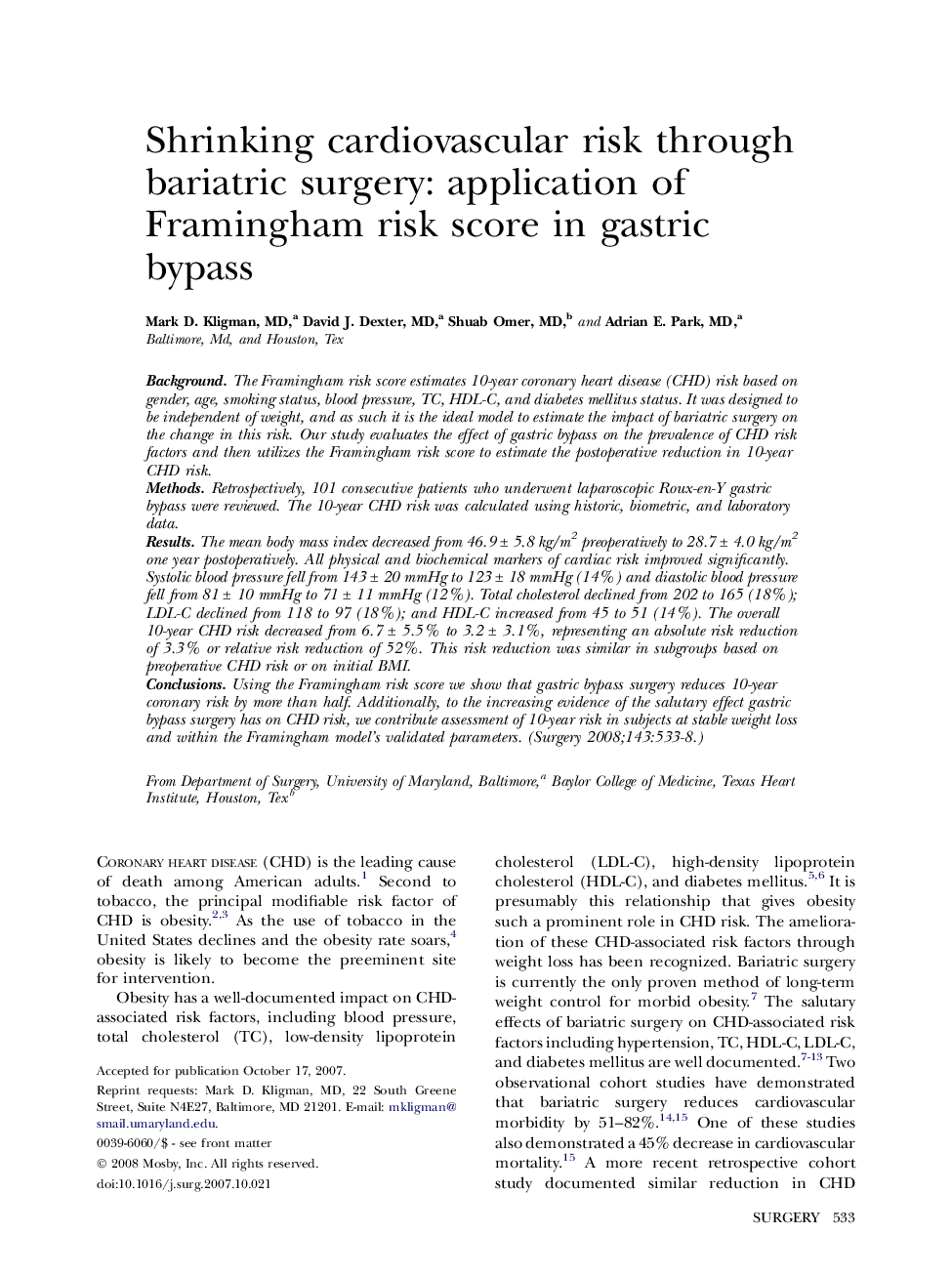| Article ID | Journal | Published Year | Pages | File Type |
|---|---|---|---|---|
| 4309360 | Surgery | 2008 | 6 Pages |
BackgroundThe Framingham risk score estimates 10-year coronary heart disease (CHD) risk based on gender, age, smoking status, blood pressure, TC, HDL-C, and diabetes mellitus status. It was designed to be independent of weight, and as such it is the ideal model to estimate the impact of bariatric surgery on the change in this risk. Our study evaluates the effect of gastric bypass on the prevalence of CHD risk factors and then utilizes the Framingham risk score to estimate the postoperative reduction in 10-year CHD risk.MethodsRetrospectively, 101 consecutive patients who underwent laparoscopic Roux-en-Y gastric bypass were reviewed. The 10-year CHD risk was calculated using historic, biometric, and laboratory data.ResultsThe mean body mass index decreased from 46.9 ± 5.8 kg/m2 preoperatively to 28.7 ± 4.0 kg/m2 one year postoperatively. All physical and biochemical markers of cardiac risk improved significantly. Systolic blood pressure fell from 143 ± 20 mmHg to 123 ± 18 mmHg (14%) and diastolic blood pressure fell from 81 ± 10 mmHg to 71 ± 11 mmHg (12%). Total cholesterol declined from 202 to 165 (18%); LDL-C declined from 118 to 97 (18%); and HDL-C increased from 45 to 51 (14%). The overall 10-year CHD risk decreased from 6.7 ± 5.5% to 3.2 ± 3.1%, representing an absolute risk reduction of 3.3% or relative risk reduction of 52%. This risk reduction was similar in subgroups based on preoperative CHD risk or on initial BMI.ConclusionsUsing the Framingham risk score we show that gastric bypass surgery reduces 10-year coronary risk by more than half. Additionally, to the increasing evidence of the salutary effect gastric bypass surgery has on CHD risk, we contribute assessment of 10-year risk in subjects at stable weight loss and within the Framingham model's validated parameters.
